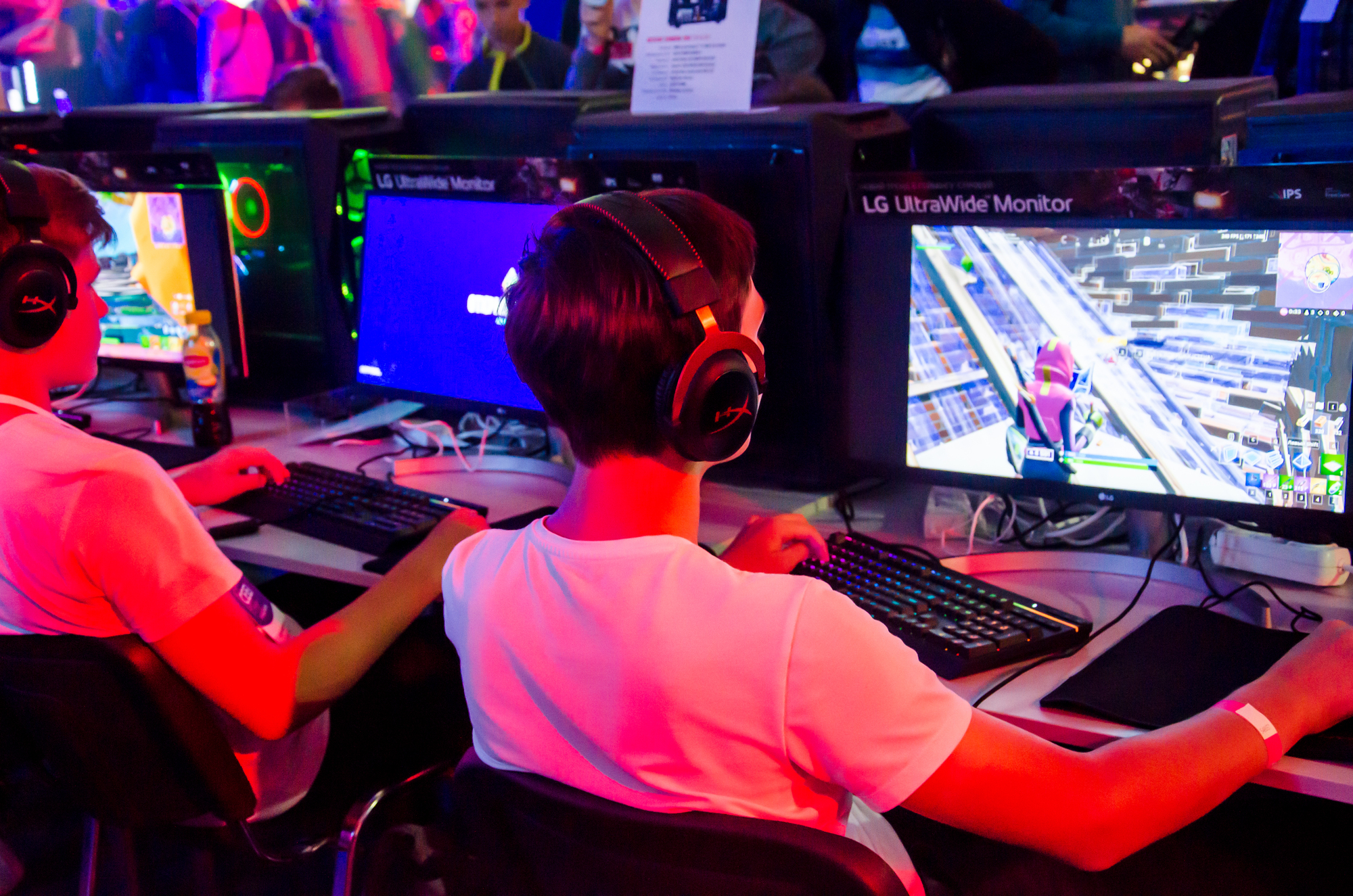Artificial intelligence is transforming the entertainment industry, with gaming at the forefront of this revolution. AI enhances gameplay, creates more realistic characters, and personalizes user experiences. AI algorithms analyze player data and preferences to deliver tailored content, making games more engaging and immersive.
The integration of AI in gaming goes beyond player experience. Game developers are using AI to streamline production processes, automate repetitive tasks, and reduce costs. This allows creators to focus on innovative storytelling and game mechanics, pushing the boundaries of what’s possible in interactive entertainment.
As AI technology advances, we can expect to see even more sophisticated applications in gaming. From smarter non-player characters that evolve and learn to AI-generated game worlds that adapt in real-time, the future of gaming promises to be more dynamic and responsive than ever before.
Evolution of AI in Gaming
Artificial intelligence in gaming has transformed from simple non-player characters to complex, dynamic environments that respond to player actions. This progression has revolutionized game design and player experiences.
From NPCs to Dynamic Environments
Early AI in games focused on basic non-player character (NPC) behaviors. These NPCs followed predetermined paths and had limited interactions with players. As technology advanced, AI algorithms improved, allowing for more sophisticated NPC behaviors. Modern games feature NPCs that adapt to player choices, learn from interactions, and exhibit lifelike qualities.
AI now extends beyond individual characters to shape entire game worlds. Dynamic environments react to player actions, creating unique experiences for each playthrough. Weather systems, wildlife behaviors, and even terrain can change based on AI-driven algorithms. This level of responsiveness enhances immersion and replay value.
Procedural Content Generation and Realism
AI has enabled procedural content generation, a technique that creates game elements algorithmically. This approach allows for vast, diverse game worlds without manual design of every detail. Procedurally generated landscapes, quests, and items provide fresh experiences each time a player engages with the game.
Realism in games has greatly improved through AI. Physics simulations powered by artificial intelligence create more believable environments and character movements. AI-driven facial animations and voice synthesis technology produce lifelike character interactions. These advancements blur the line between virtual and real-world experiences, deepening player engagement.
Creative Synergy of AI and Human Design
AI and human designers collaborate to push the boundaries of gaming experiences. This partnership enhances art, storytelling, music, and post-production in innovative ways.
Enhancing Art and Storytelling
AI assists game designers in creating detailed virtual worlds and characters. Machine learning algorithms generate textures, landscapes, and character models, saving time for artists to focus on creative aspects. AI tools help writers craft branching narratives and dynamic dialogue systems, enabling more responsive storytelling.
Procedural generation techniques powered by AI create vast, unique game environments. This allows for expansive worlds with varied terrain, flora, and structures. Human designers curate and refine these AI-generated elements to maintain artistic vision and gameplay balance.
AI also enhances non-player character (NPC) behaviors. Advanced algorithms create more lifelike and unpredictable NPCs, improving player immersion. Human writers and designers shape these AI-driven characters to fit the game’s narrative and emotional tone.
Music and Post-Production
AI algorithms compose adaptive game music that responds to player actions and in-game events. These systems generate variations on themes and adjust tempo, instrumentation, and mood in real-time. Human composers collaborate with AI to create foundational melodies and define musical parameters.
In post-production, AI streamlines processes like audio mixing and visual effects. Machine learning algorithms assist in tasks such as noise reduction, voice modulation, and facial animation. This frees up human artists to focus on creative decisions and fine-tuning.
AI-powered tools help optimize game performance by identifying and addressing technical issues. These systems analyze frame rates, load times, and other metrics to suggest improvements. Human developers then implement these optimizations to enhance the gaming experience.
Personalized Gaming Experiences
AI-driven personalization transforms gaming by adapting to individual players. Machine learning algorithms analyze user data to tailor gameplay elements and provide customized recommendations.
Adaptive Difficulty and Content Recommendations
AI systems adjust game difficulty based on player performance. They monitor success rates, completion times, and skill progression to fine-tune challenges. This dynamic balancing keeps players engaged without frustration or boredom.
Content recommendations use AI to suggest new games, levels, or in-game items. These systems analyze user preferences, play styles, and purchase history. They present personalized options that match individual tastes.
AI can also generate unique content for each player. Procedural generation creates varied landscapes, quests, and characters. This approach offers fresh experiences tailored to user preferences.
Learning User Behavior for Enhanced Engagement
AI algorithms track and interpret player actions to improve user experience. They identify patterns in gameplay, social interactions, and time spent on different activities.
This data helps predict player preferences and future behaviors. Games can then adapt storylines, character interactions, or reward systems to suit individual players.
AI-powered chatbots and virtual assistants enhance player support. They learn from user interactions to provide faster, more accurate responses to queries and issues.
Personalized marketing campaigns use AI to target players with relevant offers. These systems analyze spending habits and game preferences to present appealing promotions.
Future and Ethical Considerations of AI in Entertainment
AI in entertainment brings exciting possibilities and important ethical questions. The integration of AI systems is reshaping virtual worlds and raising concerns about data privacy and user rights.
Envisioning the Next-Gen Virtual Worlds
AI-powered virtual and augmented reality technologies are creating more immersive entertainment experiences. Game environments are becoming increasingly responsive and dynamic, adapting in real-time to player actions and preferences. AI characters exhibit more lifelike behaviors and can engage in natural conversations with players.
These advancements blur the lines between virtual and physical realities. AI simulations may soon replicate real-world physics and social interactions with unprecedented accuracy. This opens up new possibilities for education, training, and therapeutic applications within gaming and entertainment platforms.
As AI capabilities grow, virtual worlds could become indistinguishable from reality. This raises questions about the psychological impacts of hyper-realistic simulated environments on users.
Advocating for Data Privacy and User Empowerment
The use of AI in entertainment often involves collecting and analyzing large amounts of user data. This practice enables personalized content recommendations and tailored experiences. However, it also presents risks to individual privacy and autonomy.
Entertainment companies must implement strong data protection measures. Clear consent processes and transparency about data collection are essential. Users should have control over what personal information is gathered and how it is used.
There are also concerns about AI systems potentially manipulating user behavior or emotions. Safeguards are needed to prevent exploitative design practices. Industry standards could help balance innovation with ethical considerations.
Empowering users with AI literacy is crucial. People need to understand how AI shapes their entertainment experiences. This knowledge allows for more informed choices about engagement with AI-driven platforms.










